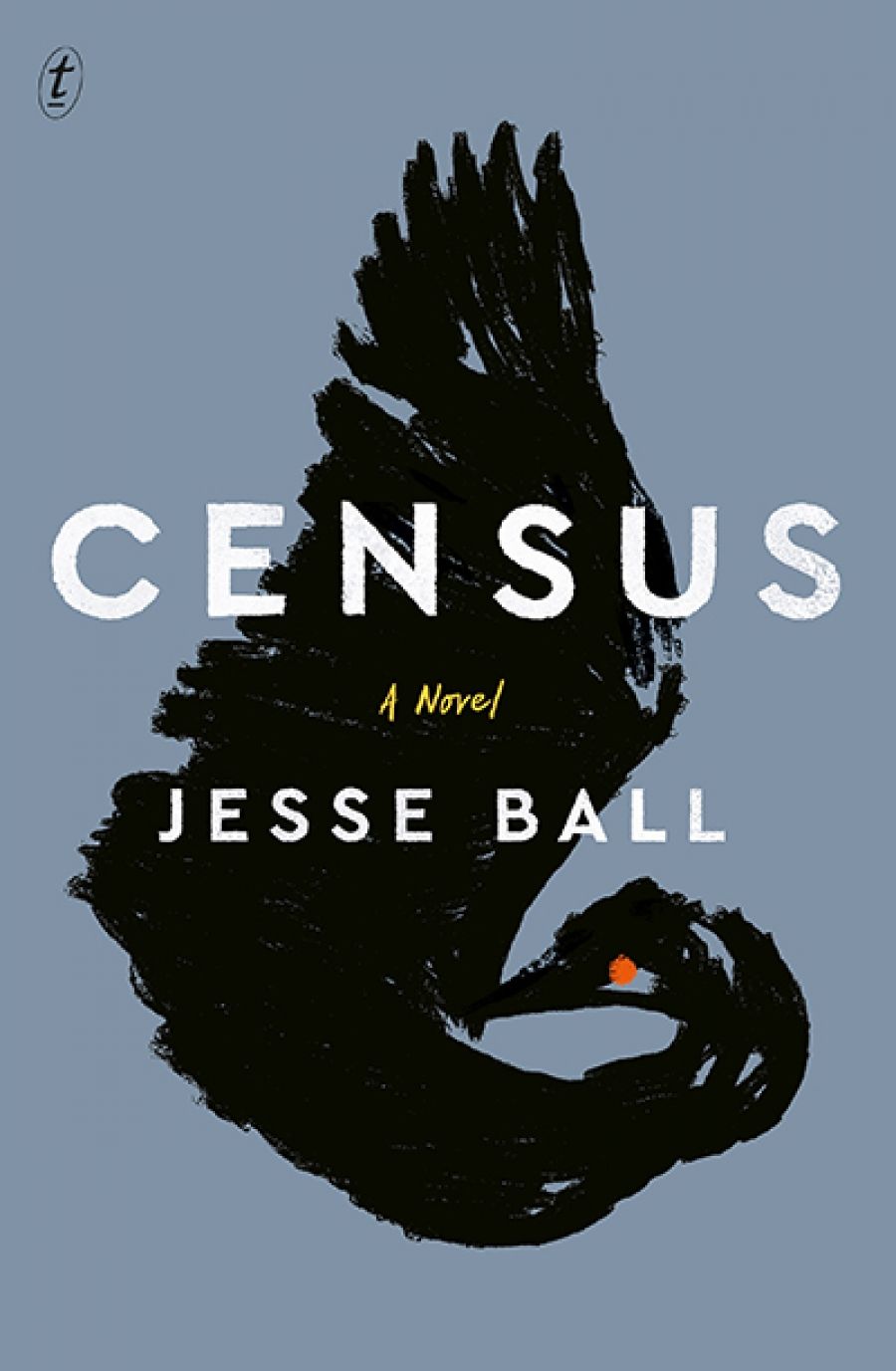
- Free Article: No
- Contents Category: Fiction
- Custom Article Title: Beejay Silcox reviews 'Census' by Jesse Ball
- Custom Highlight Text:
You have come to see a magic show. You arrive at the theatre, take your seat. Before the show begins, the magician steps onstage in his street clothes and explains what you are about to see; where the mirrors are hidden – every trapdoor, false bottom, and wire. When the lights go down, impossibly – even after everything you ...
- Book 1 Title: Census
- Book 1 Biblio: Text Publishing, $29.99 pb, 272 pp, 9781925603446
These opening pages are both wholly earnest and an act of literary misdirection, for what a reader might expect now that the emotional mechanisms have been laid bare is not the show to come. Census is no wistful weepy or eloquent polemic – cynics take note: it is an absurdist metaphysical parable, reminiscent of Beckett, Kafka, or Calvino. In short, it’s a Jesse Ball novel; the thirty-nine-year-old’s eighth in just over a decade and further evidence that he is one of America’s most interesting high-concept voices.
In the fine tradition of absurdist metaphysical parables, Census opens with an unnamed man digging his own grave. He is a former surgeon, a widower, a father, and our narrator. It is no mystery that his story will end in this lonely patch of dirt, but until then he is waiting: ‘as I wait images circle – of my life, of my son, of these most recent days’. Census is an account of these most recent days, the days after the man learns he is dying and vol-unteers as a census-taker, driving with his son through a melancholy country of consecutively lettered towns, from A to Z: ‘It will give us something to do, a last season together, a purpose that has essentially as much purpose as a thing can have, yet no purpose at all.’ Part odyssey, part fool’s errand.
Of the son, we learn everything that matters and nothing that can be pathologised. We learn that he can ‘leap out of his heart into some empathy with the thing observed, whether it is a Ferris wheel or a tortoise’; that he fills their journey with song. We learn that when people meet him they ‘stop at a distance they consider safe’, but tellingly, ‘it is never the same distance’. As Ball has explained in an interview with Publisher’s Weekly, ‘The use of any of the language associated with disability and handicap immediately forfeits any possibility for a full portrait.’
The terrain of this strange country is surreal and somnambulant, as if imagined by Dr Seuss and populated by David Lynch – a Vaseline-lensed kingdom of convivial menace. There is a train that travels west on even-numbered days and east on odd-numbered days; a town where parents cut off their children’s thumbs to save them from a life in a misfortune-prone rope factory. There are puzzle-makers and aging nymphomaniacs, a mayor who wishes she were a cormorant, a doctor in a too-white coat. After participating in the census, each person is marked (somewhat sinisterly) with a tattoo on a designated rib.
 Jesse Ball (photograph by Joe Lieske)The ideas may be fantastical, but the prose is not: ‘I would rather go about the thing plainly,’ our narrator explains. This sparseness allows Census to strain credulity by rendering the phantasmagorical as ordinary. It largely succeeds. Ball, like his narrator’s clown-mimic wife, is ‘one of those performers who gives a sense that there is no performance, it is just life and we happen to see it’.
Jesse Ball (photograph by Joe Lieske)The ideas may be fantastical, but the prose is not: ‘I would rather go about the thing plainly,’ our narrator explains. This sparseness allows Census to strain credulity by rendering the phantasmagorical as ordinary. It largely succeeds. Ball, like his narrator’s clown-mimic wife, is ‘one of those performers who gives a sense that there is no performance, it is just life and we happen to see it’.
Linguistic austerity does not belie emotional austerity. Like Ball’s previous work, Census is precise rather than frigid. The novel is stoically irreverent, riddled with existential riddles. Its closing paragraphs are some of the finest in recent American fiction – wrenching and raw – and its final pages contain a wordless coda that description ruins. Ball is a writer who knows that the art of seeing can be diminished by the act of looking: ‘out in the world I have come to see that he who looks too hard for any particular thing, though he may find it, will certainly miss the most wondrous and strange things he passes, though they stare him in the face’.
As the narrator and his son drive deeper and deeper into the alphabet, the narrator strays from his census-bureau script – he stops looking and starts seeing. He begins by allowing his son to choose the houses where they stop, then he amends the questions they ask. Soon he abandons the questions altogether, though not the quest, for it is the son who is the novel’s true measure, its census. His innocence is confronting in its perfection, in how much it demands of others in demanding nothing at all: ‘It is hard to feel someone owes you anything when they live without regret. What you do for them you do for yourself, isn’t it so?’
Ball describes Census as a ‘hollow’ book, designed around the memory of his brother. ‘I would place him in the middle of it, and write around him.’ In clumsier hands this would read as a trick – a narrative carapace. In Ball’s, it is sorcery.


Comments powered by CComment